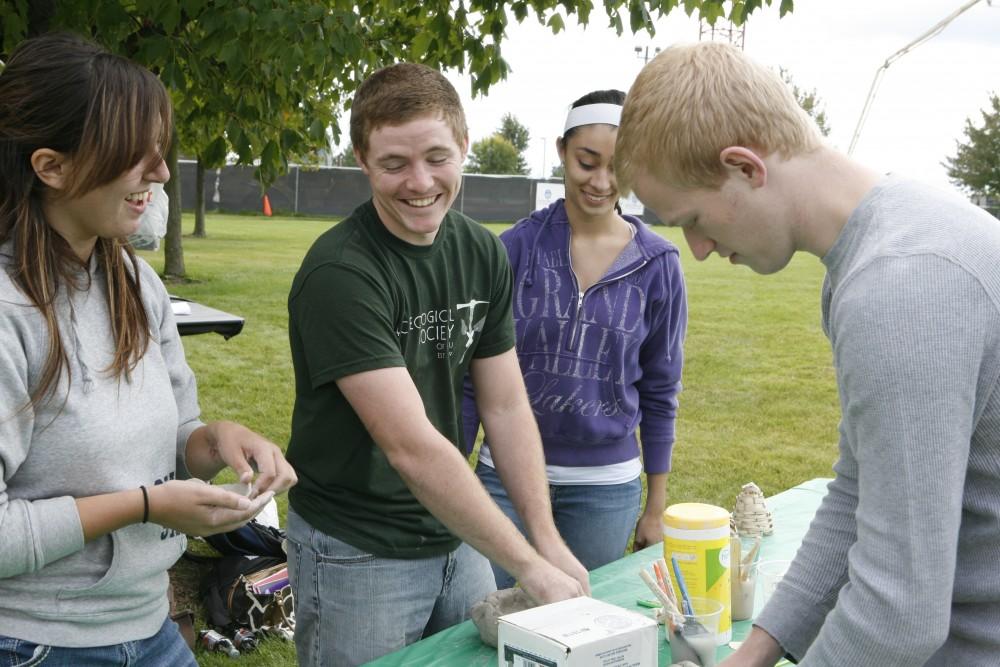Archaeology Week allows students to take history in their own hands and explore ancient crafts as part of the Paleo-olympics

GVL/ Eric Coulter Haley Scott, Kyle Legant, Courtney Sammut and Kevin Gurski focus hard on molding their clay pots during the Paleo-olympics as a part of Archaeology Week.
Sep 26, 2011
If there is anything that comes close to time-travel, it is archaeology. The study itself can say something real about the ancient world through material remains.
Archaeologists collect data on the ancient worlds and study human history. They can also specialize in pottery and learning about ancient animal bones and human remains.
“Archaeology integrates work in the humanities, the social sciences, the physical sciences and the arts,” said Melissa Morison, classics professor at Grand Valley State University.
Last week, the Archaeological Society of GVSU, a student organization, hosted the third annual Archaeology Week at GVSU.
Archaeology Week is an opportunity for the whole campus community to engage in a conversation about interdisciplinary connections. Morison, the Archaeological Society of GVSU’s adviser, said it is designed to allow students from all majors to make connections and participate.
Both staff and students celebrated the week through various events, lectures and demonstrations.
“Archeology is very scientific,” said Mark Schwartz, associate professor of anthropology. “One of the misconceptions is that archeologists work with very little information, when in fact, archeologists recover huge amounts of it.”
On its first day, Archaeology Week started with a dinner reception. Other activities included a movie night, faculty presentations, student presentations and, to end the week, the Paleo-Olympics.
“Paleo-Olympics is the largest event and is kind of like a field day for archaeology students,” said Hillery York, Archaeology Society president. “It includes large group games, as
well as small table group activities.”
York is a history major who is minoring in archaeology. As the president of the organization, it is her job to coordinate all Archaeology Week events. She believes it is important for students to understand how archaeology can influence their majors, too.
“It is a way to bring us together because we all use archaeology in our fields,” she said. “Through Archaeology Week, people have the opportunity to meet other people who are pursuing the same interests.”
During the Paleo-Olympics, Schwartz demonstrated an atlatl, an ancient spear-thrower that was used all over the world for thousands of years.
“Students seemed to enjoy it,” he said. “Without a sense of our own history, it is really hard for people to understand their place in the world today. Everything has a big picture and I think it gives people a better perspective on the modern world.”
Through Archaeology Week, the events help raise awareness about the classes available for students and about the Archaeology Society. It also gives them an idea of some of the opportunities available on campus if they are interested in archaeology.
Morison assisted students in the club with any concerns they may have had during the course of planning the different events for the week. For the most part, however, students in the club planned the entire week’s programming by themselves.
“The students in the group are energetic, committed and truly inspiring,” she said.
To learn more about the Archaeological Society, contact Hillery York at [email protected].






















